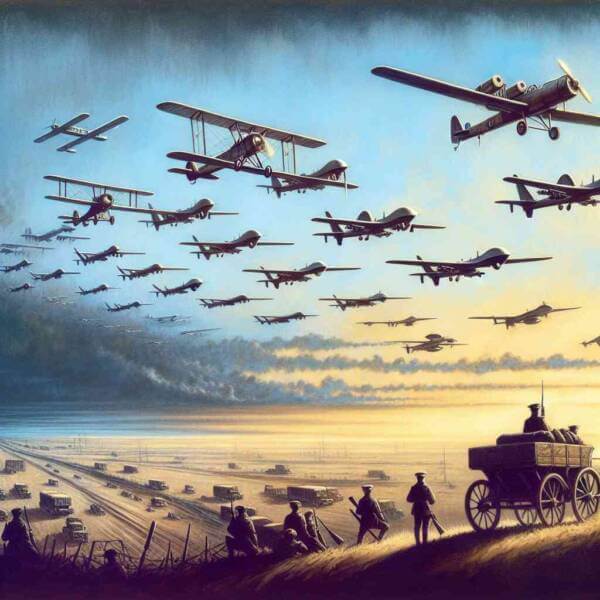Modern Military Aviation Explained
Modern Military Aviation Explained
Blog Article

Since its beginnings in the early 20th century, military aviation has changed how wars are fought.
Today, military aviation encompasses a wide range of technologies, from fighter jets and bombers to surveillance drones and transport planes.
The Evolution of Military Aviation
As technology advanced, airplanes were adapted for combat, changing the nature of warfare forever.
Key developments over time:
- First use of armed aircraft in combat
- Creation of long-range bombers and jets
- Emergence of strategic bombers and nuclear deterrence
- Modern drone warfare
Each era brought new technologies that expanded aerial warfare.
Main Categories of Military Aviation
Military aviation includes a variety of aircraft, each designed for different roles.
Common categories of military aircraft are:
- Planes built for speed and agility
- Aircraft for long-range attacks
- Transport aircraft
- Eyes in the sky for modern armies
Each type plays a critical function in military operations, from securing airspace.
The Strategic Value of Military Aviation
Air superiority is essential for achieving military success.
Strategic advantages of air dominance:
- Providing close air support
- Cutting off enemy resources
- Surveillance and reconnaissance missions
- Boosting morale
Nations with strong military aviation capabilities can defend their interests more effectively.
Technological Innovations in Military Aviation
Constant research and development redefine capabilities for future warfare.
Future technologies in military aviation:
- Stealth technology
- Ultra-fast strike capabilities
- Autonomous drones
- Laser and electromagnetic systems
These advancements increase survivability for air read more forces worldwide.
Obstacles Facing the Industry
From high costs to geopolitical tensions, the road to air dominance is filled with hurdles.
Pressing issues in military aviation:
- Rising development and maintenance costs
- Need for constant upgrades
- Securing digital communications and data
- Ethical concerns with autonomous weapons
Addressing these challenges is crucial to staying ahead.
What Lies Ahead
Nations will continue investing in space-based systems to maintain strategic advantages.
Expected advancements:
- Autonomous mission planning
- Space as the next battlefield
- Developing sustainable aviation technology
- Collaborations across allied air forces
The next era of military aviation will redefine defense.
Conclusion
Military aviation remains a powerful force in global defense.
As technology continues to evolve, the skies will remain a frontline of innovation where military aviation shapes the world order.
The future of military aviation is limitless — and it’s only just beginning. Report this page